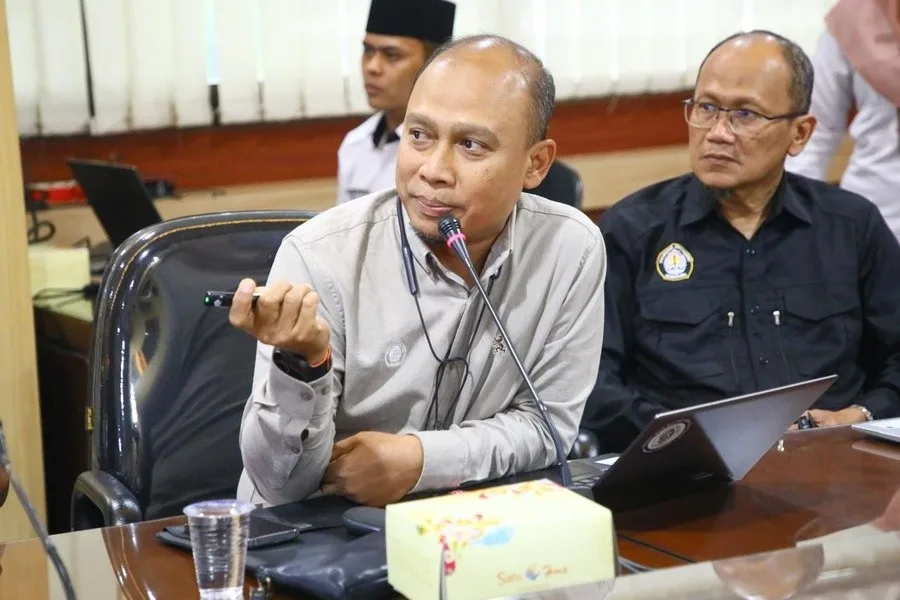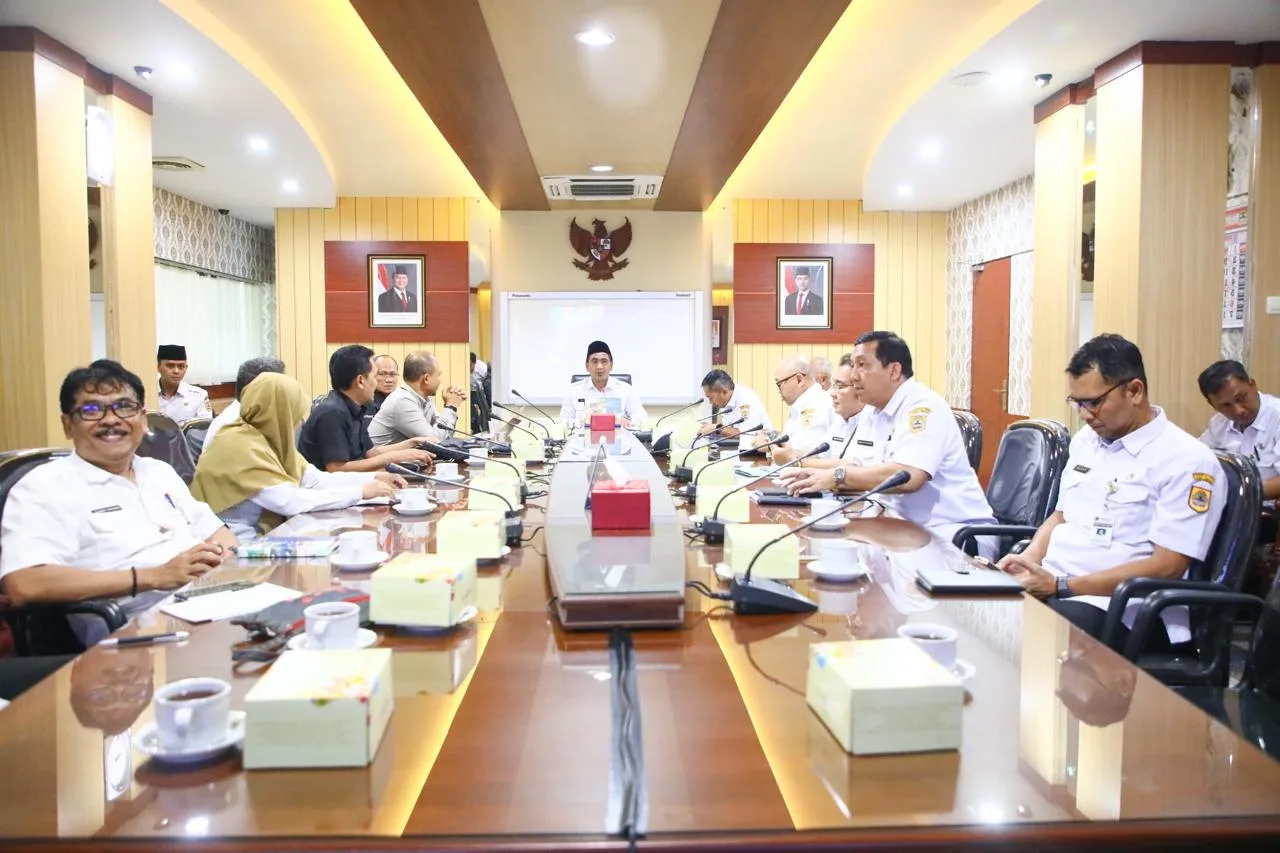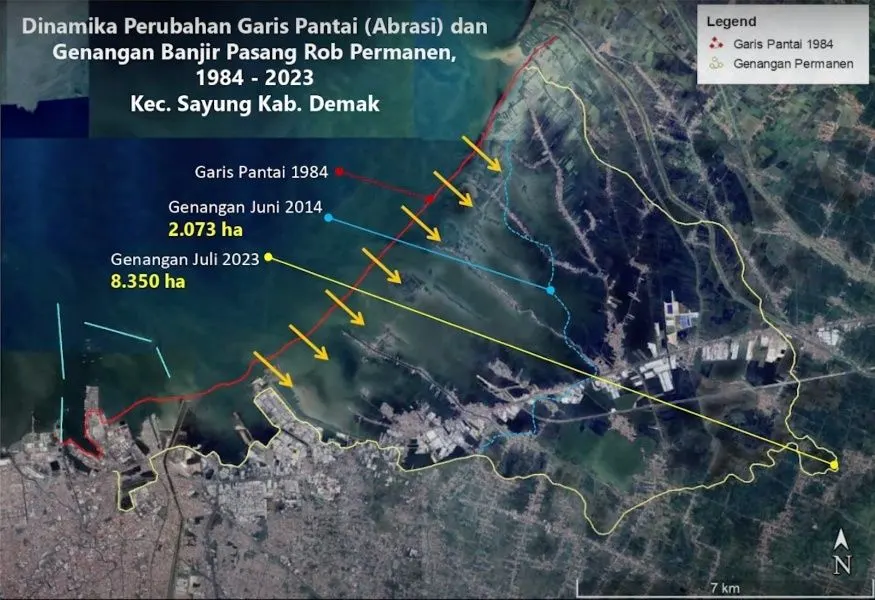UNDIP, Semarang (June 30, 2025) – The northern coast of Jawa Island, particularly Demak Regency and its surrounding areas, is facing a growing challenge. In addition to increasingly severe tidal flooding (rob), the region is also experiencing significant land subsidence. To address this issue, the Jawa Tengah Provincial Government has partnered with Universitas Diponegoro (UNDIP) to plan the construction of a Hybrid Sea Wall as a long-term flood prevention measure.
UNDIP Rector Prof. Dr. Suharnomo, S.E., M.Si., emphasized that the Hybrid Sea Wall project in Demak represents UNDIP’s commitment to delivering research-based solutions to the nation’s strategic problems, particularly those related to climate change and coastal crises. “This is not merely an infrastructure project. It’s a holistic initiative that integrates engineering innovation and ecological approaches through participatory methods. UNDIP is here not only to generate knowledge but also to create real impact for society — as a noble and valuable university,” he said.
Prof. Denny Nugroho Sugianto, S.T., M.Si., Head of the Tidal Flood and Coastal Flood Control Team at UNDIP’s Institute for Research and Community Services (LPPM), and an expert in Coastal Engineering and Disaster Mitigation, highlighted the importance of hybrid approaches in combating tidal flooding. According to him, coastal flood protection can follow two models of sea wall design: the Giant Sea Wall and the Hybrid Sea Wall.
He explained that both solutions address tidal flooding and sedimentation, particularly in the coastal area of Sayung District, Demak Regency. “Both concepts aim to protect the coastline from abrasion while also controlling tidal floods,” Prof. Denny said.
The Giant Sea Wall is a massive structure based on large, reinforced concrete walls designed to withstand extreme wave forces. While effective at blocking seawater, it comes with high construction costs, long timelines, ecosystem disruption, and the risk of shifting the problem to nearby areas.
Hybrid Sea Wall: Merging Engineered and Natural Solutions
In contrast, Prof. Denny proposed the Hybrid Sea Wall, a combination of complex structures with environmentally friendly components such as mangrove restoration and intertidal zone rehabilitation. This approach is more sustainable, as it combines physical resilience with ecological benefits.
The Hybrid Sea Wall is a concrete step in the collaboration between the Jawa Tengah Provincial Government and universities. Prof. Denny explained that this innovation is more than just a flood barrier — it is an ecosystem restoration strategy that also enhances access for fishers, improves water quality, and promotes coastal economic sustainability. UNDIP has been researching this concept since 2012 in Timbulsloko Village, Sayung District, Demak Regency.
“This hybrid strategy combines lightweight concrete engineering (kelontong) with mangrove ecosystem approaches, offering an adaptive and eco-friendly solution to tidal floods and erosion along Jawa Island’s north coast. Mangrove restoration plays a vital role in the design. Besides reducing wave energy, coastal vegetation traps sediment and helps form new land naturally,” he said.
Prof. Denny added that physical structures alone are insufficient without adaptive coastal zoning and land-use management. “If we build a structure without addressing inland drainage or zoning behind the sea wall, rob water can still enter from other directions or cause inland flooding. It must be a unified system,” he stressed.

Photo: Prof. Denny Nugroho Sugianto, S.T., M.Si., Head of the LPPM UNDIP’s Tidal Flood Control Team; Prof. Achmad Zulfa Juniarto, Deputy Head of LPPM UNDIP for Community Service, presenting to the Jawa Tengah Provincial Government.
Integrated and Collaborative Approach
Prof. Denny believes the project will only succeed through collaboration and early involvement of local communities. Long-term planning and cross-sectoral support, including from national and regional governments, are essential.
“The most important thing is to build shared awareness. Tidal flooding and land subsidence aren’t just technical issues — they are also social, economic, and cultural. We need to change both our perspectives and actions,” said Prof. Denny, who has worked in coastal engineering for over 20 years.
UNDIP’s Coastal Contributions
As a research university, UNDIP actively supports this initiative through scientific studies, spatial mapping, and numerical modeling. The university is also involved in educating and empowering coastal communities affected by the issue. Activities include mapping flood and sedimentation impacts, involving fishers and residents in the design and implementation process, and integrating research and monitoring into climate resilience planning.
Prof. Denny hopes the hybrid model will become a national blueprint, prioritizing ecological and economic synergy. “If managed collaboratively, we can protect coastal ecosystems while improving fishers’ livelihoods,” he said. The research aligns with UNDIP’s vision as a world-class research university with socially and environmentally impactful applied research.
“UNDIP continuously promotes applied research. In this project, we contribute to technical planning, shoreline dynamic simulation, and risk analysis. Our goal is not only to build infrastructure but also to strengthen community resilience,” Prof. Denny concluded.
The Hybrid Sea Wall in Demak Regency is more than an infrastructure project — it’s a strategic step toward resilient and sustainable coastal governance. The initiative reflects a collaborative commitment between government, academia, and the community to face future climate and hydrometeorological challenges.
Through the innovation of the Hybrid Sea Wall, combining ecological approaches with innovative engineering, UNDIP reaffirms its role as a university that not only excels in research but also delivers practical solutions to societal problems. The collaboration with the Jawa Tengah Provincial Government demonstrates that knowledge-based efforts can have a transformative impact on sustainable coastal management.
Through applied research, community empowerment, and multi-stakeholder synergy, UNDIP continues to establish itself as a dignified and impactful university, supporting the Ministry of Education’s vision to create higher education institutions that benefit both the nation and the environment. (Public Communication/UNDIP/DHW; ed. Nurul Hasfi)











